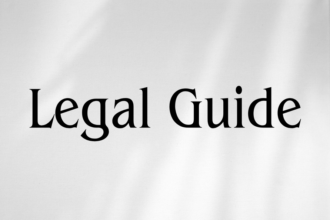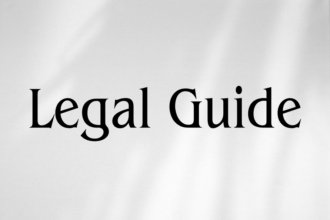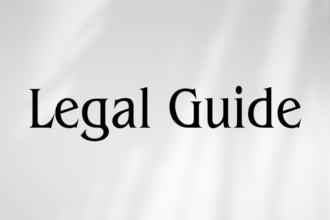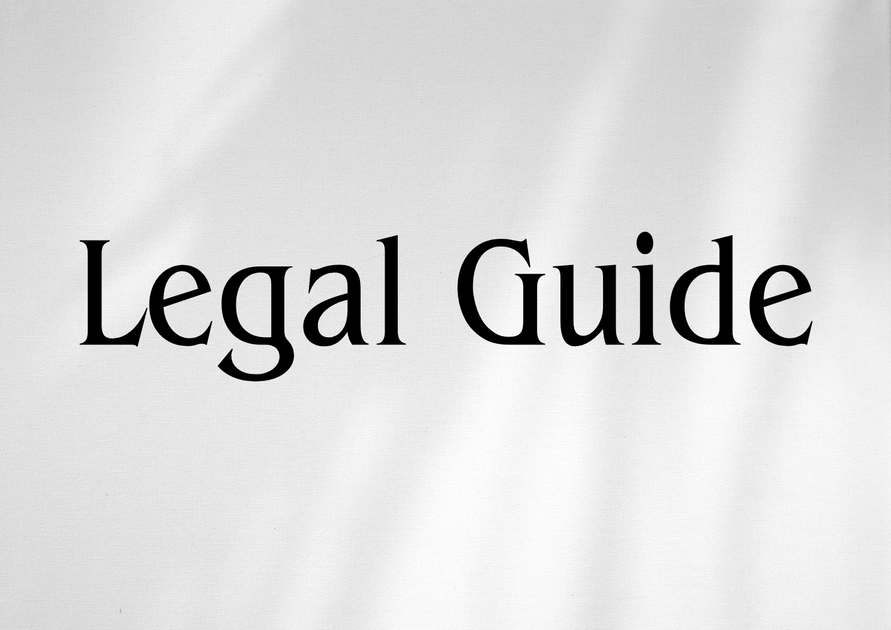Introduction: Navigating Aircraft Leasing and Financing Under UAE Law
The United Arab Emirates stands as a critical global aviation hub, not only due to its thriving airlines and airports but also because of its robust legal framework underpinning the aviation sector. As cross-border aviation transactions escalate and the UAE government implements new legal reforms, understanding the latest standards in aircraft leasing and financing is vital for every aviation stakeholder—including airlines, lessors, financiers, and legal professionals. In recent years, especially with the introduction of Federal Decree-Law No. 8 of 2022 on the Regulation of the Leasing of Aircraft and subsequent 2025 ministerial guidelines, the UAE has reinforced its commitment to best international practices while tailoring compliance requirements to local business realities. This consultancy-grade article delivers an authoritative analysis of the current legal environment for aircraft leasing and financing in the UAE. Readers will benefit from in-depth, practical insights, illustrative comparisons, risk evaluations, and reliable strategies for compliance under the most recent UAE regulatory updates. Whether you represent a multinational lessor, a local airline in expansion mode, or a corporate flight department considering lease versus purchase, these insights are crafted to inform sound decision-making and legal due diligence.
Table of Contents
- Scope of Aircraft Leasing and Financing in the UAE
- Core Legal Framework and Regulatory Authorities
- Key Provisions of UAE Aircraft Leasing Law 2025 Updates
- Critical Contractual Issues and Protective Clauses
- Types of Lease Arrangements in the UAE
- Financing Structures: Legal Implications and Documentation
- Comparing Old and New Regulations
- Case Studies and Hypotheticals
- Risks of Non-Compliance and Strategic Compliance Measures
- Conclusion and Best Practices for Aviation Stakeholders
Scope of Aircraft Leasing and Financing in the UAE
The UAE aviation sector supports a diverse array of transactions, including operating leases, financial leases, sale and leasebacks, engine and parts leasing, and myriad tailored financing solutions. International lessors consider the UAE a favorable jurisdiction due to strategic geographical location, pro-business legal environment, and membership in international conventions.
Why This Matters
Aircraft-related transactions often surpass the value and complexity of typical commercial contracts, involving asset values in the hundreds of millions of dollars and long-term cross-border obligations. Regulatory clarity is indispensable for:
- Smooth facilitation of international finance flows
- Attracting and protecting foreign investment in UAE aviation
- Mitigating legal and reputational risks for both lessors and lessees
- Streamlining enforcement of security interests and repossession rights
Core Legal Framework and Regulatory Authorities
Statutory Foundations
The primary statutory source governing aircraft leasing and financing is Federal Decree-Law No. 8 of 2022 Concerning Aircraft Leasing Regulation, effective as of January 2023. This law harmonizes several local regulations with international standards, notably those found under the Cape Town Convention on International Interests in Mobile Equipment (acceded by the UAE in 2008).
Key Regulatory Bodies
- General Civil Aviation Authority (GCAA): Regulates all civil aviation activities, registration, and licensing (www.gcaa.gov.ae)
- Department of Economic Development: Licenses activities for domestic lessors/financiers
- UAE Ministry of Justice: Oversees dispute resolution and judicial enforcement
- Federal Transport Authority: Supervises cross-border air transport compliance
Recent Cabinet Resolutions and Ministerial guidelines—especially the Circular No. (1) of 2025—have clarified registration procedures, dispute mechanisms, and financial disclosure standards for aviation transactions in the UAE.
Key Provisions of UAE Aircraft Leasing Law 2025 Updates
1. Lease Registration Requirement
All aircraft operating under a lease arrangement to/from a UAE entity must be registered with the GCAA. Leases not registered risk being unenforceable and subject to administrative penalties under UAE law. Key updates in 2025 emphasize digital application processes and real-time status tracking for lease registration.
2. Recognition and Priority of Security Interests
In harmony with the Cape Town Convention, UAE law affords recognized security interests priority in enforcement over subsequent claims. The new 2025 guidelines demand concurrent registration of security interests at both the International Registry and the GCAA’s online portal.
3. Repossession, Deregistration, and Remedies
Federal Decree-Law No. 8 of 2022 grants lessors the right to seek expedited deregistration and repossession in cases of default, provided they have validly registered their interests and satisfied procedural requirements. The 2025 Cabinet Resolution affirms lessor rights but obligates advance notice to lessees and opportunities for cure periods—an essential update for balancing commercial and consumer protections.
4. Financial Reporting and Transparency
Entities involved in aircraft leasing and financing must adhere to international financial reporting standards (IFRS), per the UAE Ministry of Finance’s 2024 Mandate, and disclose relevant financial exposures for all material leases in their statutory filings.
Critical Contractual Issues and Protective Clauses
Drafting, negotiating, and enforcing aircraft leasing contracts in the UAE require rigorous attention to regulatory compliance and risk allocation. Recommended consultancy strategies include:
- Choice of Law and Jurisdiction: Strongly recommend explicit reference to UAE law with a secondary arbitration clause (e.g., DIFC-LCIA or ICC) to ensure enforceability and international recourse.
- Termination and Early Withdrawal: Contracts should reflect the specific cure periods and notice obligations set out by the 2025 updates.
- Maintenance, Return Conditions, and Insurance: Define clear parameters for maintenance, insurance (per GCAA standards), and return conditions, taking into account the updated GCAA technical bulletins.
- Payment Structures and Currency: Stipulate payment in stable currencies (often USD), address prevailing exchange rules, and clarify late payment penalties in accordance with Ministerial Circulars.
- Force Majeure and Sanctions Clauses: Ensure robust drafting to address extraordinary events, including pandemic or conflict, and align with UAE’s anti-money laundering protocols.
Types of Lease Arrangements in the UAE
Operating Lease
Typically short- to mid-term, with the lessor retaining ownership and risk. Under UAE law, operating leases are commonly used for airlines seeking fleet flexibility without significant capital outlay.
Finance Lease
Long-term, conferring quasi-ownership rights and benefits to the lessee. The relevant law requires finance leases to be registered, and they often carry more detailed repossession procedures and liability allocation specifics. Finance leases are favored by airlines planning long-term strategic investments.
Sale and Leaseback
Common for operators seeking to monetize assets while continuing operational control. Recent GCAA circulars require comprehensive disclosure of sale/leaseback arrangements in regulatory filings to enhance transparency and prevent regulatory avoidance.
Financing Structures: Legal Implications and Documentation
Aircraft financing transactions are typically structured through lending against security, sale and leaseback, or hybrid finance arrangements. The legal implications vary depending on structure:
- Secured Lending: Requires registration of mortgage or charge with the GCAA, per Federal Law No. 20 of 2016 Concerning the Mortgage of Movables as Security for Debt, and the International Registry.
- Structured Finance/ABS: Increased use of asset-backed securities and Special Purpose Vehicles (SPVs) in the UAE, particularly following the 2024 Financial Market Regulation Guidelines.
- Islamic Finance: Ijarah and Murabaha structures are increasingly popular; documentation must accommodate Sharia principles and GCAA technical regulations.
Sample Compliance Checklist Table
| Requirement | GCAA Registered Leases | Finance Lease | Islamic Lease |
|---|---|---|---|
| Registration with GCAA | Mandatory | Mandatory | Mandatory |
| IFRS Reporting | Required | Required | Required (adapted for Sharia) |
| Security Interest Registration | Optional | Mandatory | Optional (per structure) |
| Sharia Compliance | Not applicable | Not applicable | Mandatory |
Suggestion: Visualize process flow of lease registration and enforcement as an infographic for the website version to engage readers.
Comparing Old and New Regulations
| Topic | Pre-2022 Law | 2022 Law & 2025 Updates |
|---|---|---|
| Lease Registration | Manual, paper-based, often delayed enforcement | Mandatory online registration, expedited enforcement, digital status tracking |
| Security Interest Priority | Uncertain, limited recognition of Cape Town priorities | Full recognition per Cape Town Convention, dual registration required |
| Lessor Remedies | Lengthy court procedures, ambiguous timelines | Streamlined repossession, enforced cure periods, clear notice protocols |
| Compliance Disclosure | Minimal, not aligned with international standards | Full IFRS disclosure, Ministry of Finance oversight |
Alt text suggestion: Table contrasting pre-2022 and post-2022 UAE aircraft leasing law requirements.
Case Studies and Hypotheticals
Case Study 1: International Lessor Enforcing Security Interest
Facts: A UK-based lessor leased a Boeing 787 to a UAE airline. Airline defaults in 2025 after the new law takes effect. The lessor had registered its interest both at the International Registry and the GCAA’s online portal.
Application: Under the new regime, the lessor sends required notice to the lessee, observes the statutory cure period, and then submits expedited deregistration and repossession requests. The GCAA processes enforcement in weeks—marked improvement from previous timelines.
Case Study 2: Non-Compliance with Lease Disclosure
Facts: A local business charters an aircraft for VIP operations but fails to disclose lease liabilities in annual financial statements, contrary to Ministry of Finance and GCAA guidelines.
Application: During regulatory audit, non-compliance is flagged, resulting in administrative penalties, public admonition, and potential suspension from future aircraft operations in the UAE. This highlights critical importance of financial transparency and cross-departmental compliance checks.
Case Study 3: Islamic Leasing Structure for Fleet Expansion
Facts: An airline opts for an Ijarah-based (Sharia-compliant) lease for five Airbus A321neos. The agreement includes GCAA-mandated maintenance and reporting clauses.
Application: The airline’s compliance with both Sharia principles and GCAA technical standards enables successful registration and operation, showcasing flexibility of UAE law to accommodate diverse financial instruments while ensuring regulatory oversight.
Risks of Non-Compliance and Strategic Compliance Measures
Key Risks
- Loss of Enforcement Rights: Unregistered leases or security interests may be deemed unenforceable under UAE law.
- Administrative Penalties: Non-compliance with GCAA or Ministry of Finance rules can result in fines, suspensions, or blacklisting.
- Operational Interruptions: Non-compliance can delay aircraft delivery, return, or repossession, affecting commercial operations.
- Reputational Risk: Increased regulatory scrutiny and negative reporting can undermine business reputations.
Compliance Strategies
- Engage qualified UAE legal counsel for transaction structuring and document review.
- Conduct regular compliance audits covering registration, reporting, and operational activities.
- Implement internal training programs for legal, finance, and operations teams to stay abreast of new regulatory protocols.
- Utilize digital tools and dashboards for real-time lease registration and compliance tracking.
- Foster transparent communication with regulatory bodies.
Visual suggestion: Compliance risk matrix chart highlighting risk levels and mitigation strategies.
Conclusion and Best Practices for Aviation Stakeholders
The UAE’s evolving regulatory environment—particularly the combined effect of Federal Decree-Law No. 8 of 2022 and the 2025 reporting, registration, and compliance updates—has set a new global benchmark in aviation asset finance. By streamlining lease registration, clarifying security interests, and modernizing enforcement mechanisms, the UAE offers a stable and investor-friendly platform for aviation leasing and finance.
Looking ahead, aviation stakeholders should focus on the following best practices:
- Ensure every lease and security interest is registered both domestically and internationally;
- Integrate robust compliance processes for financial, operational, and regulatory requirements;
- Stay informed on regulatory changes issued by the GCAA, Ministry of Justice, and Ministry of Finance;
- Prioritize transparency in financial disclosures and contractual undertakings;
- Engage in regular dialogue with competent legal advisors to anticipate legal developments and adapt strategies accordingly.
By adopting these measures, businesses and professionals operating within the UAE’s aviation industry can foster long-term resilience, minimize legal exposure, and capitalize on the country’s world-class regulatory infrastructure. As regulatory reforms continue into and beyond 2025, those that invest in legal sophistication and proactive compliance will maintain a decisive edge in the global aviation marketplace.




